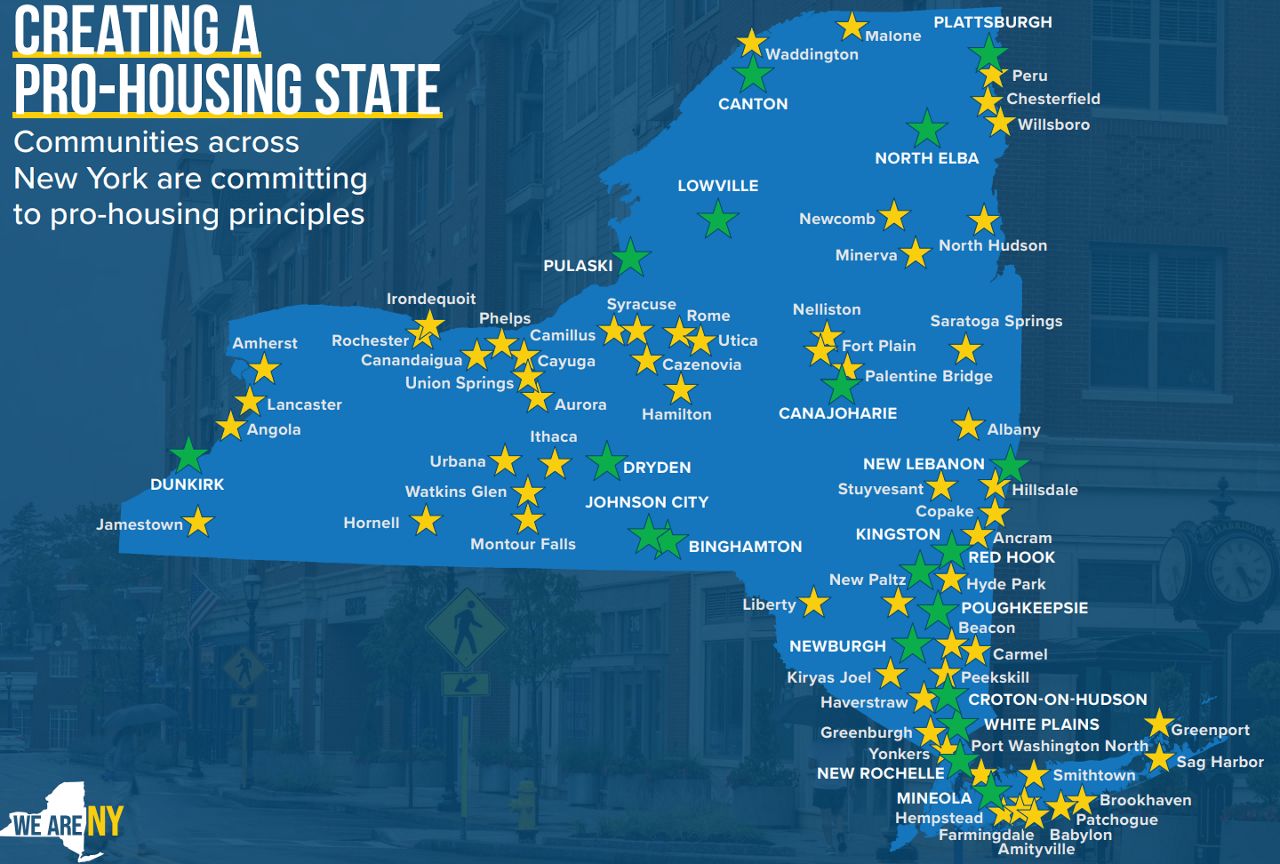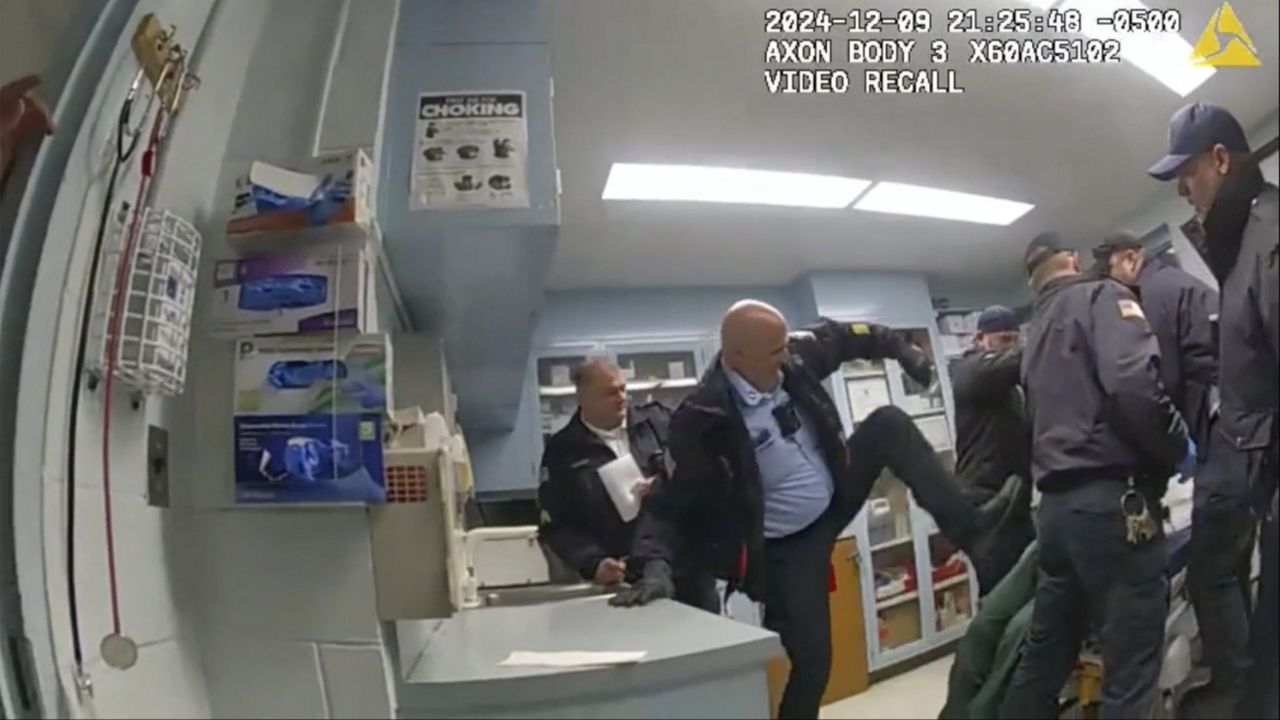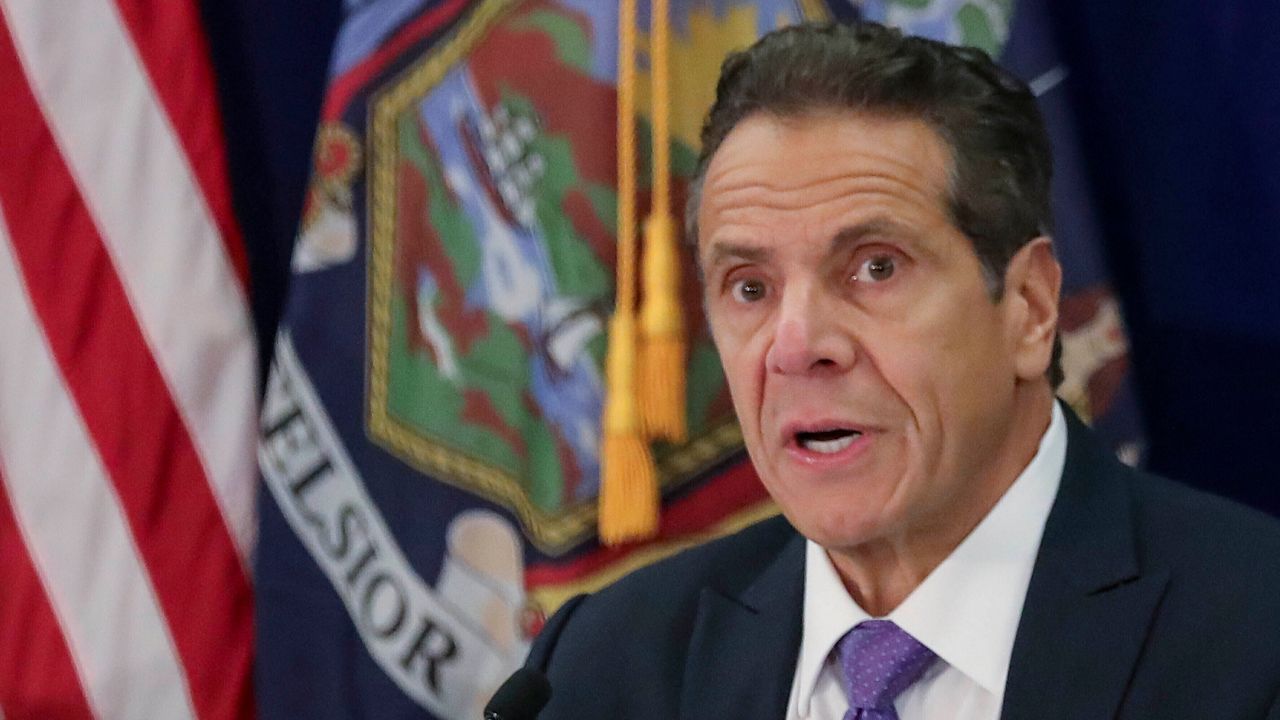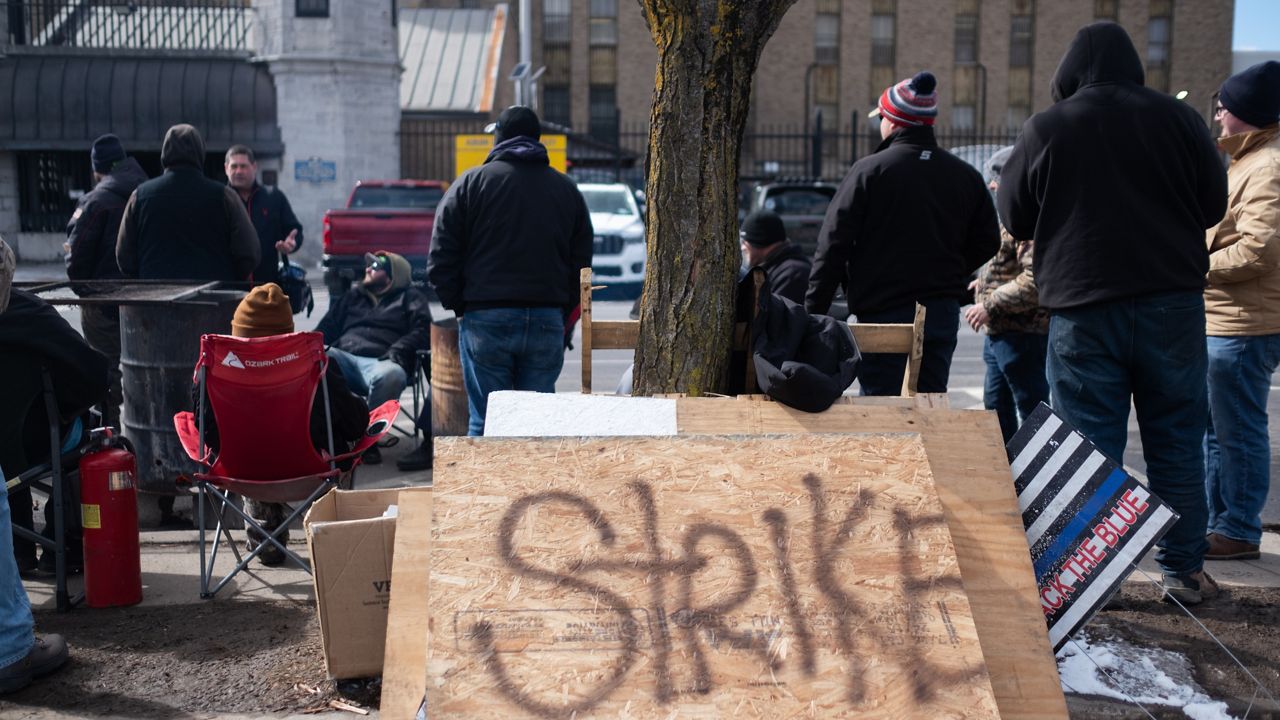Going forward, 20 New York municipalities will receive higher priority for certain state grants intended to revitalize communities and related funding for local housing projects to address the statewide shortage.
Gov. Kathy Hochul on Wednesday declared 20 municipalities around the state as "Pro-Housing Communities," and those local governments to be best poised to be awarded millions of dollars in state aid up for grabs.
"Whether it's multi-family or luxury, market rate, whatever it is – we just stopped," Hochul said at the start of the housing roundtable held in the state Capitol's ceremonial Red Room. "We had too many restrictions, too many barriers. We didn't have the political will to say that this is a great community, we can even be greater if we welcome more people in."
Many of the first designations went to upstate or small communities Hochul says will help overcome local barriers that stunted housing construction for decades.
The first Pro-Housing Communities include the cities of Binghamton, Dunkirk, Kingston, New Rochelle, Newburgh, Poughkeepsie and White Plains; the towns of Canton, Dryden, Lowville, New Lebanon, North Elba, Plattsburgh and Red Hook; and the villages of Canajoharie, Canton, Croton-on-Hudson, Johnson City, Mineola and Pulaski.
Elected representatives in those communities share a common goal with the governor to solve the state's affordable housing crisis: Build.
Hochul last July issued several executive orders that combined various state grant programs totaling $650 million to incentivize housing projects across the state. The $650 million includes aid from the Downtown Revitalization Initiative, NY Forward, the Regional Council Capital Fund, New York Main Street, Market New York capital grants, the Long Island Investment Fund, the Mid-Hudson Momentum Fund and the Public Transportation Modernization Enhancement grant programs.
The state-issued "Pro-Housing Community" designation will help municipalities revitalize their downtowns while increasing affordable housing.
The 20 municipal leaders who share the governor's vision to spur local construction visited Albany on Wednesday to be part of a 30-minute public discussion about their decision to apply.
Kingston Mayor Steve Noble said the housing shortage in the Ulster County city got worse after an influx of people from New York City moved upstate in the wake of the COVID pandemic.
"We started to see our supply go to zero, and when supply goes to zero, we saw rents and housing prices skyrocket," said Noble, a Democrat. "And that has really impacted our community's ability to keep our prices affordable."
Noble said the city of Kingston will propose to build a variety of housing types as people's pay is too low to afford market-rate apartments.
A total of 81 localities submitted letters of intent with the state Division of Housing & Community Renewal to become a Pro-Housing Community to date, including the 20 given the designation.
State officials said they hope Wednesday's announcement will inspire more to officially apply. A whopping 15 municipalities had applied for the designation, according to a Times Union report last month.

With only a few dozen municipalities expressing interest so far, state officials hope today's announcement will inspire more to apply.
Hochul included a provision in her executive budget proposal requiring localities to be a state-designated Pro-Housing Community in order to be eligible for the grants going forward, which could boost participation.
The governor added the state is on track to build and maintain 100,000 units of affordable housing for $25 billion over five years.
Eddie Watt, a trustee with the Village of Canajoharie, said the municipality decided to apply to be a Pro-Housing Community to increase needed housing for workers and residents.
Watt pushed other surrounding communities to apply and working together to complete projects.
"We're talking about a lot of shared services in our area trying to develop some undeveloped land and to do infill between some of the villages," he said after Wednesday's roundtable.
But the program alone won't satisfy members of the Legislature all up for re-election in the fall — with legislative leaders focused on passing stronger tenant protections and rent control in a housing deal this budget cycle.
"We cannot walk away from the table without a robust tenant protection program," Democrat Assemblywoman Jessica Gonzalez-Rojas said Wednesday. "If it's not exactly Good Cause, it has to be as close to Good Cause as possible, and I think that's our moral responsibility right now."









